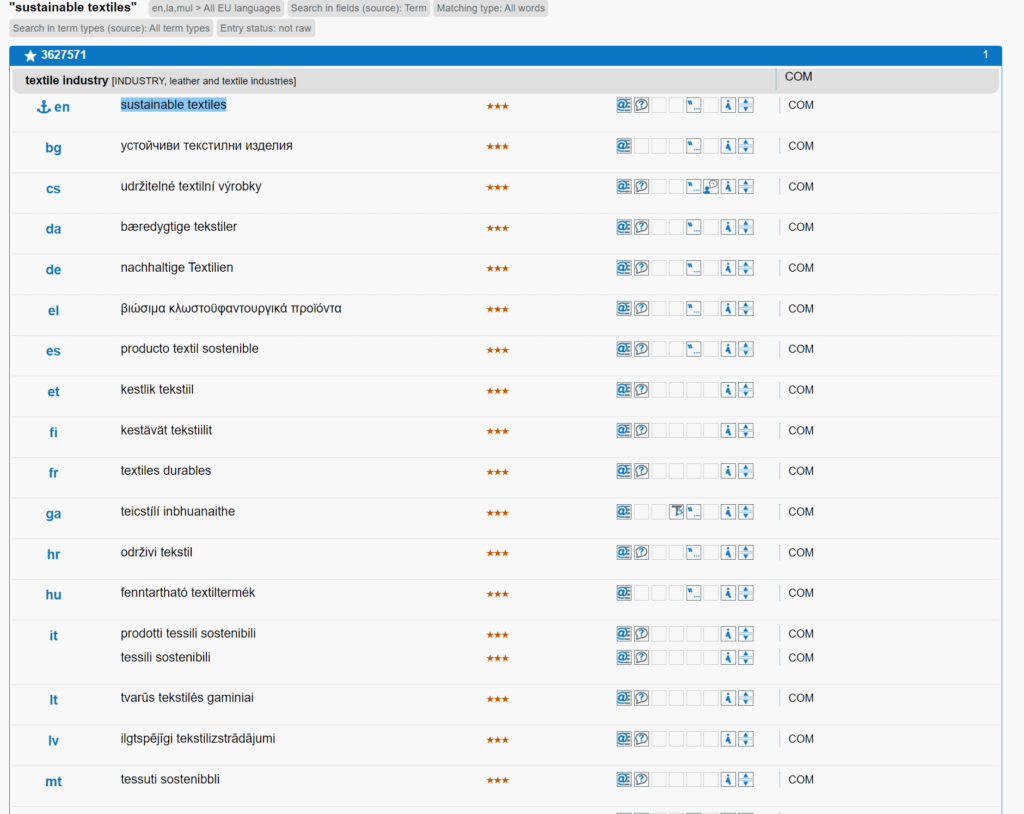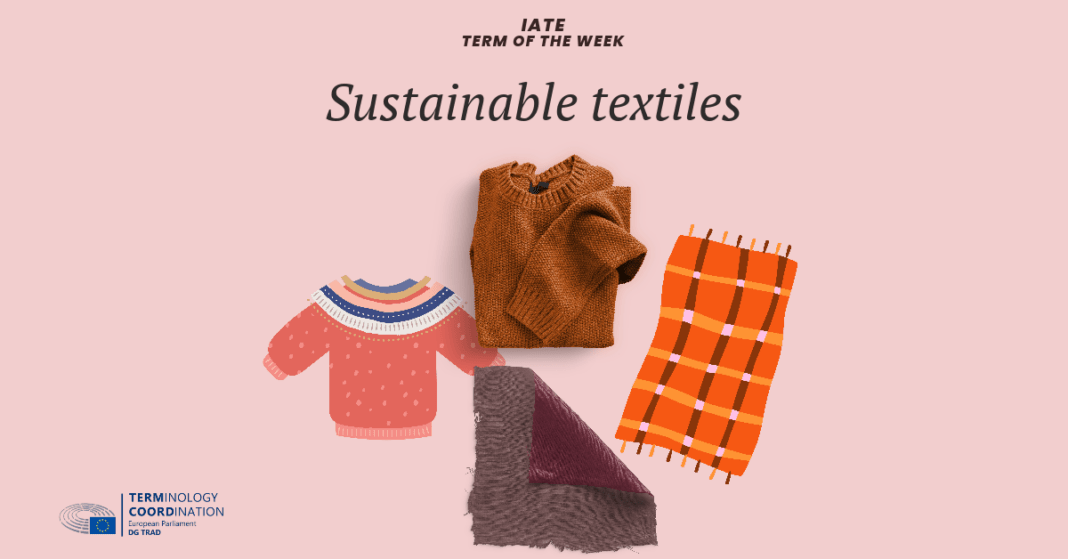Sustainable textiles are textiles and clothing made from materials and processes that have a reduced negative impact on the environment and consider social and ethical aspects of production.

EU legislation has shown its engagement in the context of environmental and consumer protection regulations. More specifically, EU has been focusing on a number of key aspects such as:
- Eco-friendly Materials: EU legislation may set standards for the use of materials such as organic cotton, recycled fibres, and innovative textiles made from renewable resources and their labelling, ensuring that consumers are informed about the sustainability of the products they purchase.
- Chemical Regulations, such as the Registration, Evaluation, Authorization, and Restriction of Chemicals (REACH) regulation, which govern the use of chemicals in textile production and aim to reduce the use of harmful chemicals and substances.
- Waste Reduction: the EU aims to encourage or regulate practices like zero-waste pattern making, recycling, and upcycling to minimize the environmental impact of the textile industry.
- Worker Rights and Fair Labour Practices: EU legislation covers labour rights and ethical treatment of workers in the textile industry. This includes standards related to fair wages, safe working conditions, and protection against child labour and discrimination.
- Environmental Labels and Certifications: The EU provides various eco-labels and certifications to help consumers identify sustainable textiles and clothing. These labels, such as the EU Ecolabel, provide guidance on choosing products that meet specific environmental and ethical criteria.
- Circular Economy, which includes extending the lifespan of textiles through repair, reuse, and recycling.
- Sustainability Reporting: Companies may be required to disclose information related to their sustainability practices and the environmental impact of their textiles. This helps consumers make informed choices and encourages businesses to adopt sustainable practices.
- Animal Welfare, which is relevant in the context of textiles made from animal-derived materials, such as wool or leather. Regulations may specify ethical treatment and conditions for animals used in textile production.
- Consumer Protection: EU legislation ensures that consumers are provided with accurate and clear information about textile products, including their composition and care instructions.
In summary, EU legislation in these areas aims to promote and enforce sustainability standards in the textile industry, benefiting both the environment and consumers. In this sense, the European Union’s aims are aligned with global sustainability goals and regulations and standards in this field are continuously evolving to address emerging challenges and opportunities for sustainability in the textile sector.
Bibliography
European Parliament. (2022). Textiles and the environment. Retrieved from European Parliament Think Thank: https://www.europarl.europa.eu/thinktank/en/document/EPRS_BRI(2022)729405
European Parliament. (2023). Textile Labeling Regulation. Retrieved from European Parliament Legislative Train: https://www.europarl.europa.eu/legislative-train/theme-a-european-green-deal/file-textile-labeling-regulation
European Union. (2022). Document 52022DC0141: COMMUNICATION FROM THE COMMISSION TO THE EUROPEAN PARLIAMENT, THE COUNCIL, THE EUROPEAN ECONOMIC AND SOCIAL COMMITTEE AND THE COMMITTEE OF THE REGIONS EU Strategy for Sustainable and Circular Textiles. Retrieved from EUR-Lex: https://eur-lex.europa.eu/legal-content/EN/TXT/?uri=CELEX%3A52022DC0141
Written by Marina Scelta
Born in Palermo (Italy), passionate about learning languages since a very young age, she studied Interpreting and Translation for English and French in her hometown, then moved to London for a Master’s Degree in the same domain (University of Westminster), eager to earn some first-hand experience in an international environment. In 2020, she decided to move back to Italy, where she applied for her second Master’s Degree in Foreign Languages for International Communication (Università degli Studi di Torino). In 2021, she had the opportunity to move to Strasbourg as an Erasmus student for almost one year, at the end of which she made of that city her new home. Currently in the process of writing her master’s thesis, in her free time Marina enjoys travelling, singing, walking in the nature, solving crosswords puzzles, and mostly looking around for vegan food.

